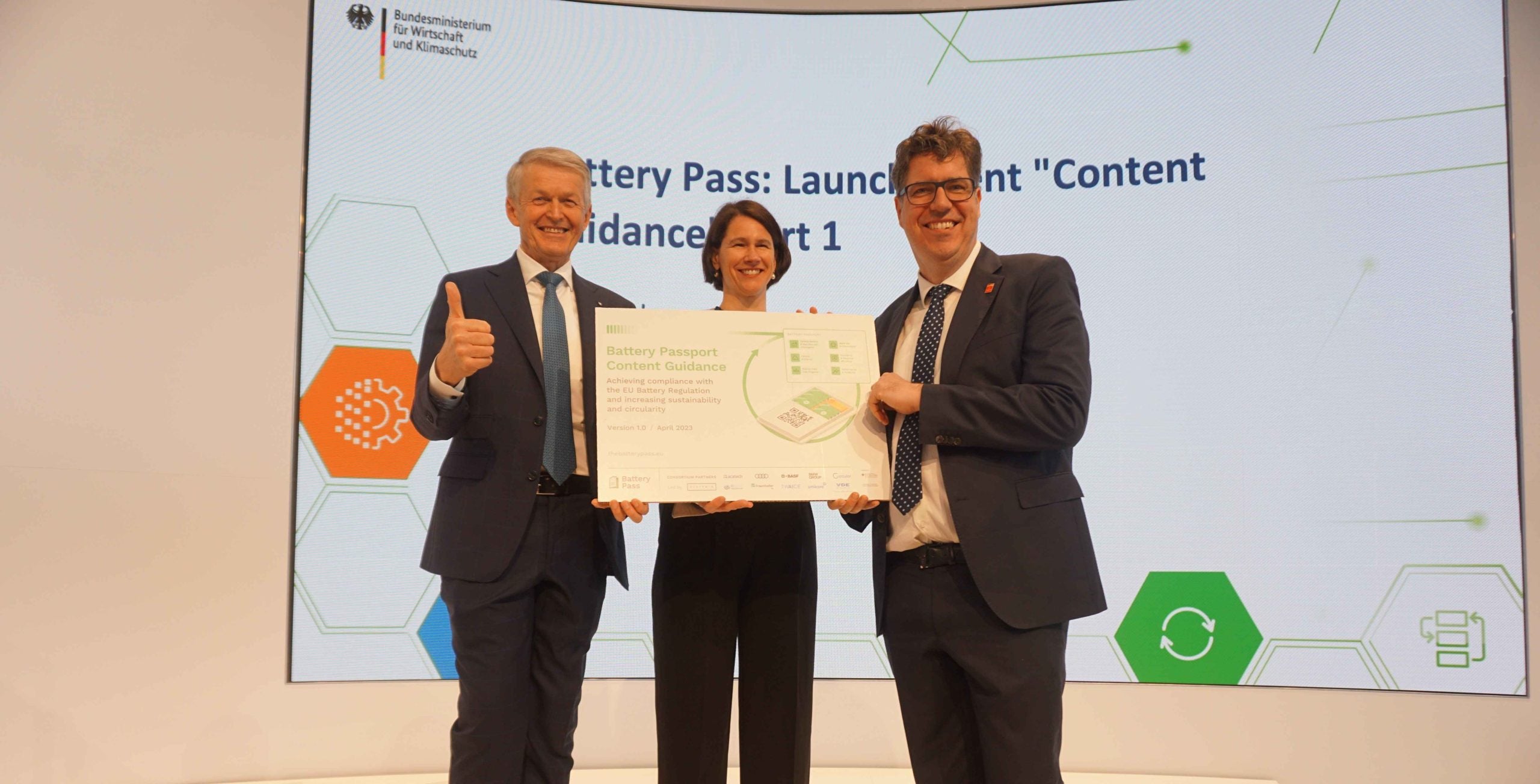
A consortium of 11 international organisations from industry, technology and science today launched the first publicly available content guidance on the EU Battery Passport.
It is designed, a statement said, to support the implementation of the battery passport as mandated by the new EU battery regulation “in a way that is feasible for industry players while guaranteeing the environmental and economic benefits of a digital product passport”.

Discover B2B Marketing That Performs
Combine business intelligence and editorial excellence to reach engaged professionals across 36 leading media platforms.
Published by the Battery Pass Project with co-funding from the German Federal Ministry for Economic Affairs and Climate Action (BMWK), the content guidance primarily addresses organisations responsible for implementing the battery passport and other battery value chain participants. It aims to provide a timely and comprehensive guidance on how to achieve compliance with the battery regulation and enable increased sustainability and circularity.
The content guidance was officially handed over at Hannover Messe to Michael Kellner, parliamentary state secretary, BMWK, at a ceremony hosted as part of the ministry’s stage programme on Funding focus Battery cell production in Germany supporting sustainable battery cell production as “a cornerstone for the climate friendly mobility of the future”.
Kellner said: “The results of the battery passport project are a major milestone in the project’s three year journey and for digital, sustainable battery value chains as a whole. It will help companies developing battery passports to shape these efficiently and in accordance with EU law.
“It may also be a sound foundation for the evolution of digital product passports in general which will be rolled out in other sectors in the future. Not least, it is a prime example of a multi stakeholder contribution to the European agenda of the ‘twin transition’ to a more sustainable and digital economy.”
In a bid to provide transparency and support for the industry and the wider battery passport ecosystem, the content guidance:
- Aggregates, interprets and assesses the content requirements mandated by the EU battery regulation. This includes highlighting unclarities and inconsistencies of the legal text and scope as well as ensuring a reasonable balancing of – sustainability objectives with industry feasibility
- Explores further key regulatory frameworks such as the ecodesign for sustainable products regulation, to highlight harmonisation potentials with other legislations
- Suggests additional value adding aspects beyond the mandatory regulatory scope to enable increased sustainability and circularity
The content guidance is complemented by a compact battery passport data ‘longlist’ comprising the 90 mandatory data attributes outlined in the EU battery regulation as well as voluntary suggestions; and rules for calculating the carbon footprint of distribution and end of life and recycling life cycle stages of batteries.
The latter was developed in collaboration with the Global Battery Alliance (GBA) to complement the already published GBA GHG Rulebook.
The combination of both documents provides the first ‘cradle to grave’ product carbon footprint rulebook designed for establishing a circular battery economy and is the basis for guiding companies to collect and aggregate company specific product carbon footprint data that enable real world emissions reduction.
Sophie Herrmann, programme director, Battery Pass Consortium, said: “Digital battery passports can contribute to lowering the impacts of battery manufacturing such as GHG emissions, increase resource efficiency along the entire value chain, and better assure the upholding of human rights standards. They are a critical aspect of ensuring resilient supplies of critical raw materials for Europe’s mobility transition.”






